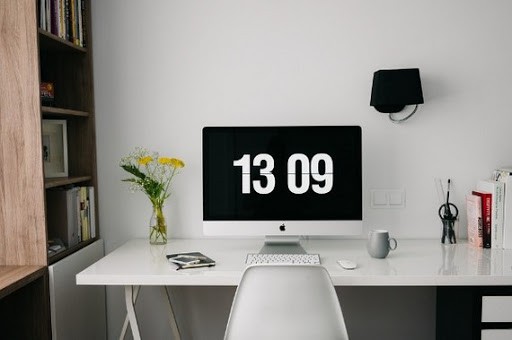Contents
When you’re ready to set up your business from home, make sure that everything is organized and ready to go when you get started. You probably don’t need an elaborate setup, but home expert Catherine Galvan gives us some tips so your business can function more efficiently if your home office is prepared to support your activities.
Arrange Your Workspace
Avoid scattering your business throughout your home or in the back of the garage. Choose a specific space and measure the dimensions if you plan to deduct home office expenses on your tax returns. For phone and computer work, you might just need an area big enough for a desk, some file cabinets, and office supplies. If you plan to make products or ship things from home, you will need a packing area with shipping supplies. For example, if you need a printer, instead of buying, go for office printer lease. Lay out the work area for each type of activity you plan to do as well as the supplies and equipment that will be needed for each function. Give yourself enough room to move around without feeling crowded or losing track of files or business essentials. Stock your workspace with everything needed to avoid delays and disruptions after you launch the startup.
Establish Boundaries
As many people working from home during the COVID-19 pandemic have discovered, it can be challenging to balance your workday with domestic duties. One way to keep your professional work distinct from family responsibilities is to set clear boundaries. A separate room, like the guest bedroom or a finished basement, may be ideal for your startup work. Alternately, your boundary can be physical by erecting a mobile room divider if the workspace is part of an open floor plan or another area that is normally open to family activities. You may want to discuss your business schedule and activities with others in the household to let them know when your work area will be off limits and whether a quiet zone in and around your space will be implemented.
While you’re at it, remind everyone not to use your office equipment or supplies if they are supposed to reserved for work only. Buy the kids their own pens, pencils, white bond paper, and staplers to keep them from borrowing yours. It’s often a good idea to conserve your office equipment for business purposes only to prevent damage or overuse.
Organize Your Work Area
Even small spaces can be organized to accommodate your supplies, files, equipment, and job-related furniture. Install wall shelves or cabinets if needed. Use stack trays for the desk supplies and stack crates for materials and other necessities. Utilize a nearby utility closet or basement and attic space for storage.
Unless you have a large workspace, you may want to buy economical-size furnishings to fit neatly in your startup area. Avoid oversize furniture like a heavy desk or office chair that will contribute to a cramped feeling.
Designate specific places for things like business-related mail, invoices, and messages. Arrange the desk space with items that you most frequently use, such as paper clips, notepads, and a calendar or schedule. Maintain adequate room for your desk, router, modem, mouse, printer, and other equipment as needed. Take advantage of promotions and sales discounts to stock up on printer cartridges and copy paper to have on hand when needed.
Keep Up With Repairs and Maintenance
Although your startup will probably command much of your daily routine, remember to monitor your office setup from time to time to ensure everything is working efficiently and smoothly. At the first sign of trouble, fix the problem or call a technician. The longer you wait, the worse it may become, leading to eventual inconvenience and a higher repair bill. Keep your equipment well maintained by having it checked every six to twelve months. That goes for your home as well, as you don’t want your furnace, plumbing, electric, or roof to develop problems when you’re tackling a major project.
Protect your technology as well. Install antivirus apps on your computer to keep your business documents and online communications secure.
Personalize Your Workspace
In addition to setting up a functional area for your business, add personal effects to make it feel cozy and inviting. Framed photos, fresh flowers, bookcase décor, and your favorite wall art will add a homey touch to the overall impression. Fill a decorous coffee mug each morning when you get started. Open the window on nice days to let refreshing air and sunshine in. Add a cushion to your desk chair and a stool on which to rest your feet. You might want to invite a family member or friend to check out your startup area and offer suggestions for additional enhancements.
Starting a personal business from home is one of the most exciting and challenging things you can do. Take steps like these to prepare for your new venture so that everything will run smoothly as you get started.


